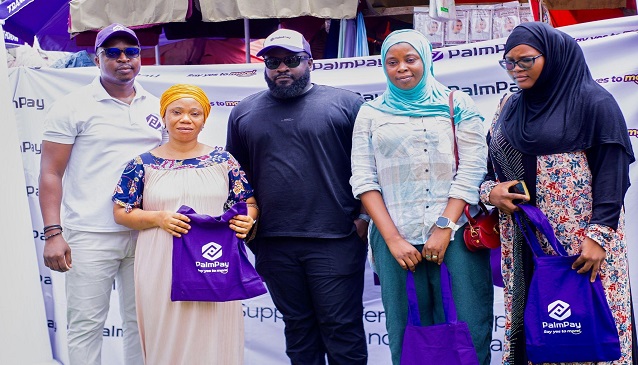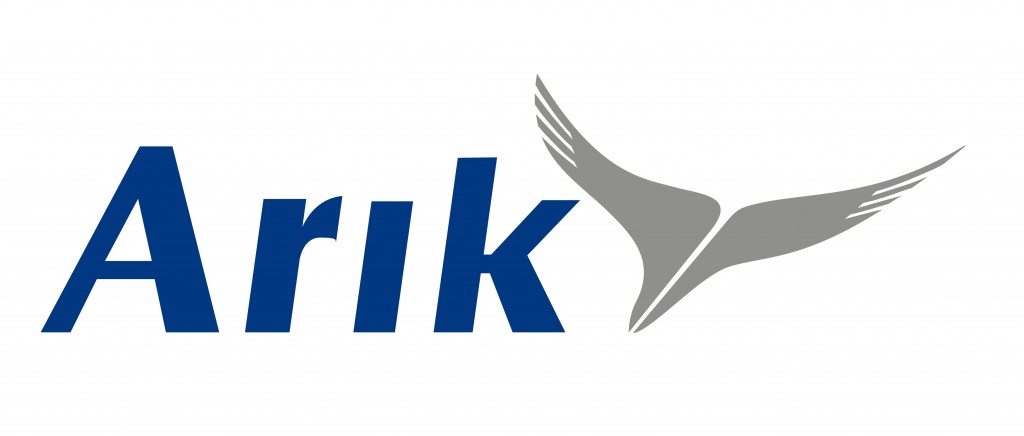News
Getting Kids Excited in the Reading Culture via eReaders
Anyone alarmed at the poor reading culture of our teaming young population? More alarming is their total lack of interest and respect for books…all they’re interested in are computer games, mobile phones and television. But it wasn’t always so. Reading was and still remains fun for some of us (they now brand our breed old school).
Recently, while discussing with my teen daughter that at form three I had completed reading 30 James Hadley Chase and five Harold Robbins titles, excluding an endless list of school texts like Gulliver’s Travel, David Copperfield, Mine Boy, The Passport of Mallam Illya, Drummer Boy and Oliver Twist amongst several other classic titles. For her, it was like a tale out Shakespears’ imagination mill. But truth is, we didn’t read because it was school textbook, you also need to show off to peers your prowess at completing particular book at a given time (like the milk kid ad wondering how he is able to complete school assignments, plays basketball with his dad, plays chess, does domestic shores and still comes top of the class).
No doubt reading enhances ones metal ability and gives the reader an edge in knowledge over his or her peers. Little wonder most Nigerians hardly identifies your origin by name anymore. Time was when we could even identify an individual to his locality by name recognition. This was only possible through reading books that tells the different cultures of Nigeria – including names, dance, food, religion and festivities.
Recently, at the Lagos State University’s library, Ojo there was a heated debate among students and lecturers on who to blame for the kids lack of interest in reading. It was quite interesting to note how lecturers (teachers) pushed the drawback at parents while exonerating themselves from any blame. I felt it is beyond blaming anyone group of people…it is a societal failure.
Parents are (or more like too busy?) occupied chasing after family’s daily needs and other sundry issues, while kids are mostly kept at nannies care. Most parents cared less about their wards’ school assignments. How could they then bother if they read books or not?
But the teachers are probably the most truant of the society. I recently checked at a neighbour’s kids’ progress in a public school, it was shocking to note that this SSS3 pupil in what is supposedly one of the best public schools (Lagos state model college, Ojo) couldn’t define Government. And come to think of it, this is supposed to be one of the simplest subjects in the school curriculum.
At another public school in Satellite Town, where the principal is a mathematics teacher, the kids had not been taught the subject one whole term. The English Language teacher never bothers about Literature in English. So how would these kids ever learn to read? It gets back to parental concern and care.
President Goodluck Jonathan’s Bring Back the Book project would remain another of those high sounding phrases that would amount to nothing if concrete steps are not taken across all strata of the society to encourage reading. This must include encouraging teachers to read and introduce reading clubs in schools – primary, secondary and tertiary. Unfortunately, I don’t see any practical steps being taken to encourage book production in the country. I am yet to see a teacher-pupil encouragement programme for reading despite all the rhetoric of Bring Back the Book. It needs to go beyond mere rhetoric’s to a more practical hands-on approach to get children reading again.
Technology is at hand to lighten the burden of cost element in the acquisition of books. “The most recent eReader I bought costs just a bit over $100 (approximately N16, 000) which is less than the price of some cell phones,” said Alex Dadson, managing director of Qualcomm, West Africa. Dadson believes the eReader could solve Africa’s book crisis and encourage more reading among the population.
The eReader is defined by Techtarget.com as “a (electronic) device for reading content, such as e-books, newspapers and documents. A standalone e-reader typically has wireless connectivity for downloading content and conducting other Web-based tasks. Popular dedicated e-readers include Amazon’s Kindle and Sony Reader.”
Technological innovations and convergence also means that the eReader and the regular smarthphones are gradually merging. “A smarthphone can have eReader software on it so the same book that you bought on an eReader, you can read it on your smarthphone,” said Dadson.
Convergence is so well defined that the same page you left-off reading in an eReader would open up to you the moment you turn on your smarthphone to the book because both devices are sync. And this becomes the challenge for our local OEMs (original equipment manufacturers) who must now take up the gullet to start production of feature phones and smart-applications, other than getting contended marketing foreign brand PCs and assembling same for the Nigerian market.
Unfortunately, the local OEMs are their own enemies as most of them who claim to manufacture PCs locally are sole licencees of the foreign brands. Nigeria is said to have one of the youngest populations in the world. It means it would be easier to sell mobility to them as their young minds and brains work better with smart-devices. A look around any major city shows one common denominator: while young people flaunt smarthphones, the older population is contented with just any mobile phone.
Little wonder the Chinese brands are now selling fast in the country. They are sleek, smart (can browse internet, etc) and cheap. The Nigeria PC OEMs can seize on this population advantage to boost sales…and even market the idea of local production of eReaders to the government which is in a drive to boost local production, and encouraging reading culture among the populace.
News
UK Minister for Africa Visits Nigeria to Deepen Strategic Partnership

The United Kingdom’s Minister for Africa, Lord Collins of Highbury, has concluded a three-day visit to Nigeria, aimed at reinforcing the UK-Nigeria Strategic Partnership.

He reaffirmed the UK Government’s strong commitment to deepening trade and investment ties between the United Kingdom and Nigeria.
During his visit, Lord Collins met with senior Nigerian government officials, business leaders, civil society representatives and United Nations agencies.
These engagements underlined the UK’s long-term drive to support Nigeria’s prosperity and stability while deepening bilateral cooperation for transformative growth across our shared priorities.
A key highlight of the visit was Lord Collin’s bilateral meeting with Nigeria’s Minister of Foreign Affairs, Yusuf Tuggar, in which both parties reaffirmed their unwavering commitment to strengthening economic ties and promoting regional security. The Minister was joined by the UK’s Trade Envoy to Nigeria, Florence Eshalomi MP.
Lord Collins also met with Deputy Speaker of the House of Representatives, Hon. Benjamin Kalu, and discussions focused on opportunities to strengthen engagement between UK’s parliament and Nigeria’s National Assembly and the importance of furthering women’s participation in politics.
Speaking on his visit, the UK Government’s Minister for Africa, Lord Collins said: “Nigeria and the UK share a rich, ambitious relationship: one that is deeply rooted in respect.
“Our Strategic Partnership is at the forefront of this, and my visit has focused on how our countries can continue deepening our cooperation on key issues such as trade and investment to drive economic growth and deliver prosperity for us all.”
The Minister held discussions with United Nations representatives on the ongoing reform of the UN system, its implications for Nigeria and how the reform can effectively support those most in need, particularly in Northeast Nigeria, whilst also contributing to global humanitarian efforts.
Lord Collins also met with civil society leaders to discuss electoral integrity and governance reforms, reinforcing the UK’s commitment to democratic values and community empowerment.
He later visited Nigeria’s Anti-Kidnap Fusion Cell: a key security initiative supported by UK expertise through the National Crime Agency and the Integrated Security Fund, which plays a vital role in enhancing local safety and combating serious crime.
Also commenting on the visit, the British High Commissioner to Nigeria, Dr Richard Montgomery, said: “Driving growth is central to the UK’s foreign and development policy. Lord Collins’ visit to Nigeria underscores the UK’s unwavering commitment to deepening our shared prosperity through expanded trade and investment. We are proud to stand alongside Nigeria as it forges a resilient and dynamic economy.”
This visit underscores the UK’s enduring partnership with Nigeria – built on mutual respect, shared goals, and a vision for a prosperous future for both nations.
News
PalmPay Launches CSR Initiatives to Empower Women, Foster Financial Literacy in Northern Nigeria

In a strategic move to expand financial inclusion in Nigeria, leading mobile banking platform, PalmPay has launched a series of CSR programs across Kano and Kaduna. The CSR initiative named “Passing the Baton” represents the brand’s commitment to passing on knowledge and providing the resources individuals and businesses need to achieve financial independence and drive economic empowerment.

This initiative is a bold move by PalmPay to bridge the opportunity gap in the North by providing financial literacy training and micro-business branding support to 5,000 women-owned businesses in Kano and Kaduna. This strategic initiative reaffirms PalmPay’s commitment to inclusive development and economic empowerment, particularly in underserved regions.
“At PalmPay, we believe that real financial inclusion must be far reaching and cover the grassroots,” said Chika Nwosu, Managing Director of PalmPay. “Our new CSR program is focused on supporting gender equity by equipping women with the knowledge, tools, and visibility they need to thrive as entrepreneurs in their communities.”
Through this initiative, beneficiaries will receive free health insurance, hands-on training workshops, enhanced store branding to boost visibility, and branded merchandise to strengthen their business presence.
The initiative is part of PalmPay’s broader strategy to extend its innovative solutions, expand its footprint in Northern Nigeria, while building sustainable partnerships with local stakeholders for long-term impact.
In a show of support, His Royal Highness, the Emir of Kano, Dr. Muhammadu Sanusi II, has endorsed the initiative, calling on other stakeholders to join forces with PalmPay in ensuring the North benefits fully from the growing digital economy. PalmPay has received commendation from community stakeholders, as the initiative aims to serve as a model for similar projects across other northern states.
As PalmPay continues to scale across Nigeria, the company remains committed to bridging the financial inclusion gap and empowering underserved groups, particularly women and youth, through its innovative solutions and impact initiatives.
News
EFCC Witness Admits Writing Off Arik Air’s $2.3M Debt Amid N76Bn Fraud Trial



 Telecom2 days ago
Telecom2 days agoGlo, Huawei, Communications Ministry Bring Digital Services to Abuja Village

 E-Financial2 days ago
E-Financial2 days agoSEC Alerts Public on Silverkuun, Trending Dubious Investment Schemes

 General News2 days ago
General News2 days agoTripoint Travels Hosts Pre-GEC Brunch for Nigerian Delegates Ahead of Global Entrepreneurship Congress 2025

 E-Financial2 days ago
E-Financial2 days agoAfrica Cross-border Payments Set to Hit $1 trillion by 2035

 News2 days ago
News2 days agoPalmPay Launches CSR Initiatives to Empower Women, Foster Financial Literacy in Northern Nigeria

 Telecom2 days ago
Telecom2 days agoExperts @ ABoICT 2025 Warn of Digital Disaster Risks in Nigeria Without AI Governance

 E-Financial2 days ago
E-Financial2 days agoSANEF, CIBN Partner to Expand Agency Banking Certification

 Broadcasting2 days ago
Broadcasting2 days agoDStv Makes History: Inducted into Brand Africa Hall of Fame as Africa’s Most Admired Media Brand




























